Proposal
For my Final Project I will incorporate my Unit 3 Piece and Evaluate the Evaluations of a certain category of movies.
Most Game or Comic Movies do not receive the greatest of reviews. However, most of these movies have a large following because the gamers or comic fans have such a large following that they want to support their hobby and favorite pass time by seeing their favorite characters (game or comic) on "The Big Screen."
I will use the movie ratings posted online and the gross profit reported for most movies to compare if the evaluation truley matched what the audience expected. I will also us movie clips and graphics to incorporate different aspects of the films to support the information I uncover.
You all know that I am not a gamer, but want to make sure I am opening up my mind and using my talents and tools to write about the topic(s) I am learning about. I also want to make sure my peers/classmates read my work and form a genuine opinion about the subject. Since our class subject is gaming with some comics thrown into the mix and passion has grown around these topics, why would I not want to play along.
I like the avenue Dyllan has taken with his 1st two unit assignments as he was reviewing the Marvel vs. DC Comics. We have reviewed some different information about how marketing has a huge play on this subject and how marketing can help or hurt films created from the two comic sieres. I will pull from his thoughts. I also have two crazy friends who are passionate about games related movies (Mike) and comics related movies (Leon). I will make sure to use their expertise and site interviews I have with them as fans.
My structure will be within our class Wiki as an online setting ans will share my final outcome with the comic and game fans of the world through chat.
My formatt and timelines will be determined upon class assignments and deadline deliverables set upon me.
I'm excited to jump into something new!!
Cover Page
What is the purpose of your evaluation?
This evaluation is put together for all of my friends who have drug me to opening night for a movie based on a comic book. Although I am the movie fan and not the actual comic fan, I would like to provide you justice so you watch your comic based movie and know that just because it was harshly criticized by the many movie critics, your comics are still amazing and
Who is your target audience?
This is for the Comic fans and critics. To the fans, I hope this gives you insight on why you have such love for your comics. For the critics, maybe this will bridge the gap between the ratings and the gross amounts earned at the box office.
What is your thesis statement?
Maybe critics should find a way to slow the film and see these comic based movies frame by frame as comics should be read.
Did I learn/try anything new while growing this composition?
Honestly, this was a challenge for me. I could have taken the route others in the class have taken and written more about one of my previous unit assignments. I thought no. In order to truly take from this class a challenging and learning experience, why not take the time to learn more about the passions of some of my friends and family. I know nothing about comics: the history, the characters, colors used and the list goes on. This gave me the opportunity to not only learn about comics in general, but have a better understanding of why they have such a passionate following.
What did I like best about my composition and the composition process?
This project gave me the opportunity to spend some time with my friends and interview them on which comics they like best, why and how long they have had such a deep passion.
Where would you like to see the most feedback/advice on your final draft?
I would love to hear feedback from my friends to see what they thought about how I used their words to support some of their favorite characters. As always, I cherish the feedback from my peers. They are in the trenches with me and I want to see if we are on the same road as we come to the end of this learning experience.
Rough Draft
Coming soon to a Comic Universe near you…
The tales of a long lost hero (or villain) who has undiscovered powers to drive the population to popcorn overdose. Let’s take some time to look at the way movie critics evaluate movies based on comic books. Comic creations have been around since the beginning of man. When did the comic book begin? When and why did these comic stories transition to movies? Now that they have crosses over to the silver screen, they are subject to the harsh evaluation of the ever dreaded movie critic (Que bum bum bum sound). Critics have been known to make or break a movie’s success in the past. Has this happened to Comic Book based stories? Since many of the popular characters have been in existence for so long, they have such a large following that the critics have little to no effect on the actual box office gross revenue. After reviewing the information, one could even think that the critics may possibly be doing bad reviews just to spark the curiosity of the public to go see how bad it could actually be. Let’s take a trip to the movies and see if I these critics deserve a WOW or a DUD.
Before we get to the theater, we should take a quick trip back in time to see where this story really begins. So, what makes a comic? In Scott McCloud’s Understanding Comics, he reviews many different comic possibilities. About half way through his first chapter, he final settles on the definition of a comic is, “Juxtaposed pictorial and other images in deliberate sequence.” That “Juxtaposed word comes up a bunch when researching comics, the history of comics and the definition of comics. The word, Juxtaposed means that these pictures or images are placed next to each other. With that said, comic drawings began as early as man can be traced back in history. Egyptian Hieroglyphics and drawings found in prehistoric caves are sequential drawings that tell a story. No words were added, only the actual drawings, but indeed the drawings are juxtaposed and sequential over a time period. In McCloud actually broke down the pictures, turning them into words to make the story.
Now, obviously, these are nowhere close to the comics we have today. That was a long time ago and we have come a long way from writing on the wall to today’s modern, printed comic book. The printing press was invented in 1944, but America was not blessed with our first printed comic until much later. The first comic published in America, Histoire de Mr. Vieux Bois was actually not printed until 1827, written by Rodolphe Töpffer (http://blogs.princeton.edu/graphicarts/2008/02/the_first_american_cartoon.html).
(Insert Pictures)
This story was considered a humorous story about a man who kept trying to commit suicide (looks like he's going to try and hang himself in this one) because his lover continues to reject him. How a story about suicide could be funny, I don’t know, but I guess humor was different in the 1800’s. Again, this is a far stretch from today’s printed comics. However, we don’t have to fast forward to far in time to get to the start of what we see today.
(Insert Pictures)
The Yellow Kid, created by Richard Fenton Outcalt was printed in 1896. He is known to be the creator of the balloon. The balloon is the circle of words with the tail to indicate what a character in a comic is saying (http://www.geocities.com/soho/5537/hist.htm). One of today’s largest comic publishing companies, DC Comics officially started in 1935. Soon after in 1938, they released one our favorite heroes Superman (http://www.dccomics.com). Another large comic book company started around the same time. Marvel Comics started in 1939 as Timely Publishing, better known as Atlas Comics in the 1950’s, then and finally released their super hero Fantastic Four comics as Marvel Comics in 1961 (http://g.courtial.free.fr/marvel_1.htm).
Marvel released Captain America to compete with the popular and loved Superman and the profit that came along with him. And, so we see the DC vs. Marvel battles begin…
(Insert Pictures)
Take a look at Nate’s Paper to see more about the battles between DC and Marvel.
Now that we know that comic book companies were profitable and financially productive, we ask, “Why would they move to the movies?” An even better question would be, “Why not?” Movies are sequential images in a deliberate order; they are just on top of each other in one space rather than placed out side by side as a comic. McCloud touches on this as well. Comics made money, so when movies started making money, it was a great way to cash in on characters and stories that were already popular. Again, Superman paved the way with his debut in 1948 as a pre short film played before a longer feature length movie (http://www.chasingthefrog.com). The first feature length movie based on a comic book character was not produced until 1966 when Batman made it to The Big Screen. Over 10 years later, the official Superman movie was released in 1978 and the story continues.
(Insert Pictures)
Now that comics made it to the movies, they are susceptible to the ever dreaded movie critic. Movie Critic Organizations have been around since the beginning of movies themselves. The New York Fillm Critic s Circle was founded in 1935 (http://www.nyfcc.com/history.php) to express to the public opinions about movies and films worldwide. Later, the National Society of Film Critics was founded in 1966 by those who were denied membership to the New York Film Critics Circle. So, just as comic book related movies entered into The Big Screen world, they were critiqued equally.
With the different types of movies out there, can movie critics genuinely be fair. Everyone has an opinion. From love stories to action and children’s cartoons to gory horror; who can really give a movie a fair review? This is why there are different types of movie critics who write about all genres of movie story lines. With few exceptions, I have found that film critics do not give comic book based movies great reviews compared to the gross profit they produce at the box office. Let’s take a look at some of the all time highest grossing movies of all times (http://www.the-numbers.com/movies/records/worldwide.php) and compare the numbers to what some of the critics say (http://www.rottentomatoes.com/).
Batman has been popular since beginning of comic time, and released one of the top 100 grossing movies of all times in 1989. This movie grossed over $400 million, yet, only 69% of the Rotten Tomatoes movie critics say that it’s worthy of not getting pummeled with rotten tomatoes. I did notice that many of the reviews were recent. Could this be because of the recent blockbuster, The Dark Knight? Heath Ledger in The Dark Knight is currently ranked as the #4 highest grossing movie of all times at just over $1 Billion. With this kind of popularity, how can even 6% of the Rotten Tomatoes’ critics say anything negative? Ross Anthony from Hollywood Report Card said that the “story is held hostage to action.”
Movie Critic History
Comic Details and how and when they became movies
How much money they gross
What Movie Critics about Comic Movies?
What do Comic Book Fans say about Comic Movies?
Why the Gross amount differs from what the movie critics say?
Sequential framing in movies compared to Comic Framing in comic books
Devil’s Advocate on Movie Critics
Reverse Psychology
Video Game Movies – Lara Croft Tomb Raider – 19% -
Future Movies and predictions
Close
Final Draft
The tales of a long lost hero (or villain) who has undiscovered powers to drive the population to popcorn overdose. Let’s take some time to look at the way movie critics evaluate movies based on comic books. Comic creations have been around since the beginning of man. When did the comic book begin? When and why did these comic stories transition to movies? Now that they have crosses over to the silver screen, they are subject to the harsh evaluation of the ever dreaded movie critic (Que bum bum bum sound). Critics have been known to make or break a movie’s success in the past. Has this happened to Comic Book based stories? Since many of the popular characters have been in existence for so long, they have such a large following that the critics have little to no effect on the actual box office gross revenue. After reviewing the information, one could even think that the critics may possibly be doing bad reviews just to spark the curiosity of the public to go see how bad it could actually be. Let’s take a trip to the movies and see if I these critics deserve a WOW or a DUD.
Before we get to the theater, we should take a quick trip back in time to see where this story really begins. So, what makes a comic? In Scott McCloud’s Understanding Comics, he reviews many different comic possibilities. About half way through his first chapter, he final settles on the definition of a comic is, “Juxtaposed pictorial and other images in deliberate sequence.” That “Juxtaposed word comes up a bunch when researching comics, the history of comics and the definition of comics. The word, Juxtaposed means that these pictures or images are placed next to each other. With that said, comic drawings began as early as man can be traced back in history. Egyptian Hieroglyphics and drawings found in prehistoric caves are sequential drawings that tell a story. No words were added, only the actual drawings, but indeed the drawings are juxtaposed and sequential over a time period. In McCloud actually broke down the pictures, turning them into words to make the story.
Now, obviously, these are nowhere close to the comics we have today. That was a long time ago and we have come a long way from writing on the wall to today’s modern, printed comic book. The printing press was invented in 1944, but America was not blessed with our first printed comic until much later. The first comic published in America, Histoire de Mr. Vieux Bois was actually not printed until 1827, written by Rodolphe Töpffer (http://blogs.princeton.edu/graphicarts/2008/02/the_first_american_cartoon.html).
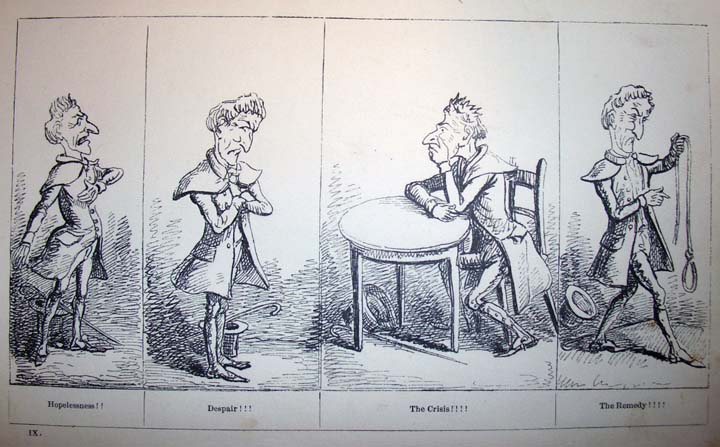
This story was considered a humorous story about a man who kept trying to commit suicide (looks like he's going to try and hang himself in this one) because his lover continues to reject him. How a story about suicide could be funny, I don’t know, but I guess humor was different in the 1800’s. Again, this is a far stretch from today’s printed comics. However, we don’t have to fast forward to far in time to get to the start of what we see today.

The Yellow Kid, created by Richard Fenton Outcalt was printed in 1896. He is known to be the creator of the balloon. The balloon is the circle of words with the tail to indicate what a character in a comic is saying (http://www.geocities.com/soho/5537/hist.htm). One of today’s largest comic publishing companies, DC Comics officially started in 1935. Soon after in 1938, they released one our favorite heroes Superman (http://www.dccomics.com). Another large comic book company started around the same time. Marvel Comics started in 1939 as Timely Publishing, better known as Atlas Comics in the 1950’s, then and finally released their super hero Fantastic Four comics as Marvel Comics in 1961 (http://g.courtial.free.fr/marvel_1.htm).
Marvel released Captain America in 1941 to compete with the popular and loved Superman and the profit that came along with him. And, so we see the DC vs. Marvel battles begin…
 VS.
VS. 
Take a look at Nate’s Paper to see more about the battles between DC and Marvel.
Now that we know that comic book companies were profitable and financially productive, we ask, “Why would they move to the movies?” An even better question would be, “Why not?” Movies are sequential images in a deliberate order; they are just on top of each other in one space rather than placed out side by side as a comic. McCloud touches on this as well. Comics made money, so when movies started making money, it was a great way to cash in on characters and stories that were already popular. Again, Superman paved the way with his debut in 1948 as a pre short film played before a longer feature length movie (http://www.chasingthefrog.com). The first feature length movie based on a comic book character was not produced until 1966 when Batman made it to The Big Screen. Over 10 years later, the official Superman movie was released in 1978 and the story continues.

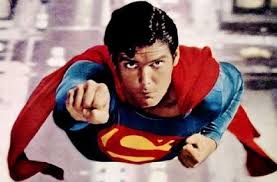
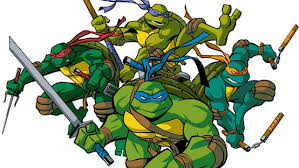



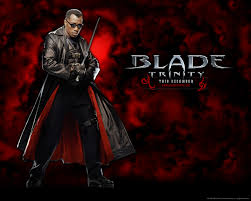
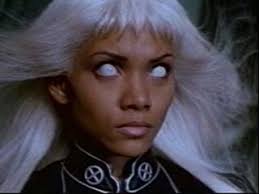
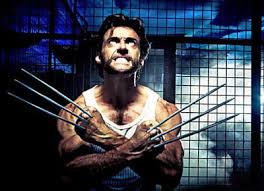
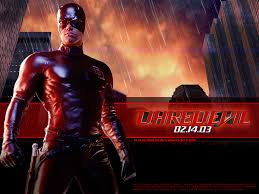
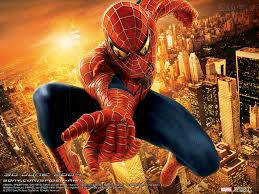
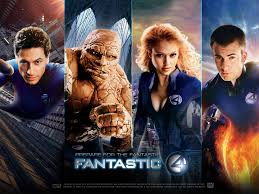
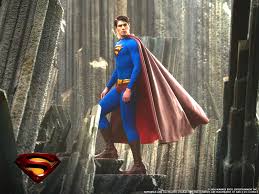

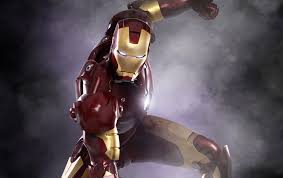

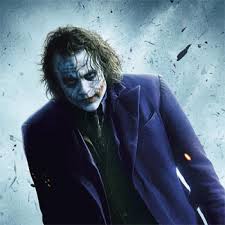

Now that comics made it to the movies, they are susceptible to the ever dreaded movie critic. Movie Critic Organizations have been around since the beginning of movies themselves. The New York Fillm Critic s Circle was founded in 1935 (http://www.nyfcc.com/history.php) to express to the public opinions about movies and films worldwide. Later, theNational Society of Film Critics was founded in 1966 by those who were denied membership to the New York Film Critics Circle. So, just as comic book related movies entered into The Big Screen world, they were critiqued equally.
With the different types of movies out there, can movie critics genuinely be fair. Everyone has an opinion. From love stories to action and children’s cartoons to gory horror; who can really give a movie a fair review? This is why there are different types of movie critics who write about all genres of movie story lines. With few exceptions, I have found that film critics do not give comic book based movies great reviews compared to the gross profit they produce at the box office. Let’s take a look at some of the all time highest grossing movies of all times (http://www.the-numbers.com/movies/records/worldwide.php) and compare the numbers to what some of the critics say (http://www.rottentomatoes.com/).
Batman has been popular since beginning of comic time, and released one of the top 100 grossing movies of all times in 1989. This movie grossed over $407 million, yet, only 69% of the Rotten Tomatoes movie critics say that it’s worthy of not getting pummeled with rotten tomatoes. I did notice that many of the reviews were recent. Could this be because critics wanted to compare it to the recent blockbuster, The Dark Knight? Heath Ledger in The Dark Knight is currently ranked as the #4 highest grossing movies of all times at just over $1 Billion. With this kind of popularity, how can even 6% of the Rotten Tomatoes’ critics say anything negative? Ross Anthony from Hollywood Report Card said that the “story is held hostage to action.” Superman Returns (2006) was listed at #109 and had a gross box office of $391 Million, and only 72% of the Rotten Tomatoes critics thought it was fresh fruit worthy. Yet, Superman: The Movie released in 1978 grossed right at $300 Million and had a 93% Fresh Fruit Rate. Other movies that made the list include all but 1 Spider man movie, All but 1 Batman movie, both Fantastic Four movies and The Incredible Hulk.
So not every movie based on a comic book I can think of made the list. My comic enthusiasts say that some of the best comic book movies were left out. Remember that the list I’m referring to is based on worldwide gross numbers. If we look at just the US, we find that 4 comic book movies have a home in the top 20 movies. One movie that I was advised had to have honorable mention, is Blade. I was told that after Batman and Robin was released in 1997 (which didn’t make the list and only received a 12% positive rating), movies based on comic books stopped getting made for a while. I noticed this and asked why. Obviously, Batman and Robin was a flop and the comic book world agrees. It wasn’t profitable, so other story lines made their way to the big screen. Marvel released a movie based on its vampire character Blade in 1998. Blade also didn’t do well, but the comic world has a bunch of reasons as to why. The character is not well known and it followed the disappointing Batman and Robin. Two years went by without a comic hero or villain released at the box office. Then, in the year 2000, I remember how excited my comic book friends were when the first X-Men movie was released. The movie grossed $296 Million and received an 80% positive review. Blade released 2 sequels and the money began rolling back in.
There is a list of comic movies that aren’t mentioned and I’ve been advised that this is for good reason. Hulk (2003) and The Incredible Hulk (2008) both received similar reviews with around a 60% positive rate, but only The Incredible Hulk (2008) made the list. Hulk (2003) was said to be “too thought out and most of the Hulk fans just want to see HULK SMASH!!” Our first, favorite and most well known comic hero Superman had 3 movies that didn’t make the list. Daredevil and Electra were just not casted right. However, for the most part, comic book movies are under rated. Even the award shows only recognize comic movies for their Best Costumes, Best Special Effects, and even Best Kiss.



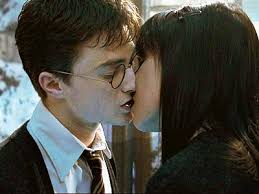
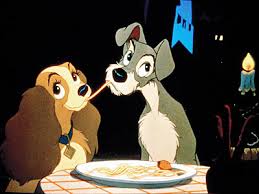

As for a comic movie getting an award for Best Actor/Actress or the ever loved Best Film; it just doesn’t happen. I guess the same could be said about cartoons, Pixar movies and horror flicks. Movies should be viewed for what they are. Each one is different and has a special place in our hearts. If a movie is well written, drawn or performed, it should have the opportunity to be considered a Best Film.

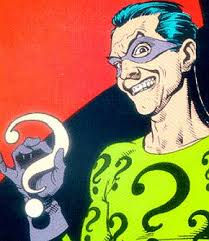

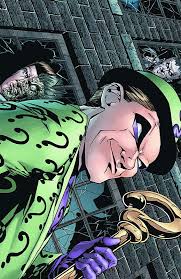

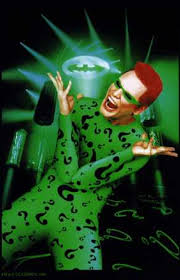
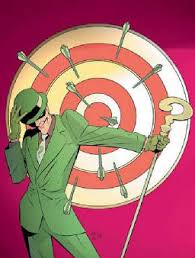

So now down to the question why!! Why is there a difference in what most movie critics have to say about comic book movies compared to what your avid comic book reader has to say? Well, my source says that, “When I can go back to being a kid on a Saturday morning and check out of like while eating popcorn – I’m happy.” I couldn’t agree more. I guess it’s all about the history and good memories when times were less stressful as a kid and responsibilities consisted of cleaning your room and making sure you didn’t have dirt in your hair before you went to bed. It’s always nice to escape reality and check out of life and stress even if it is in a room full of strangers with a sticky floor and gum under the seat. Movies can help you laugh at some else for a change and in turn can help you learn to laugh at yourself more often.
I’m glad to have had the opportunity to learn about the history of comic. Great movies of all kinds are out there and with today’s technology, movies with a comic based character are have the opportunity to become even greater. Characters like Iron Man and Wolverine can have their powers, but be placed in a city just like the one I live in today. Actors and Actresses who have grown up reading about some of the popular comic characters have a deeper passion about making sure to get into the character the way the comic book reader would want to see it. The only problem with this would be is the possible future mistakes in the possibility that writers and film directors will make these characters too real, which makes them unbelievable.
For the most part, times are changing. The Dark Knight received a nomination for the Best Actor Award and more Comic based movies are ‘Coming soon to a theater near you.’ We have another Iron Man, Wolverine and many more. We have Transformers that went from a toy to a TV show then a comic book and then a movie. With stories and characters moving from the pages of your favorite comic book and then to film and vice versa, we never know what could be next. Comic book movies are just that; a movie that is made of images and pictures placed in a deliberate order. So, the morale of this story is that the viewer holds the true value of their own review.
Reviews
Comments (0)
You don't have permission to comment on this page.